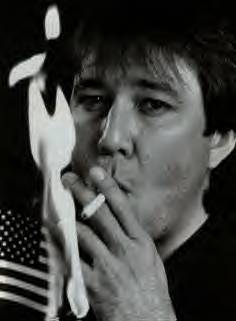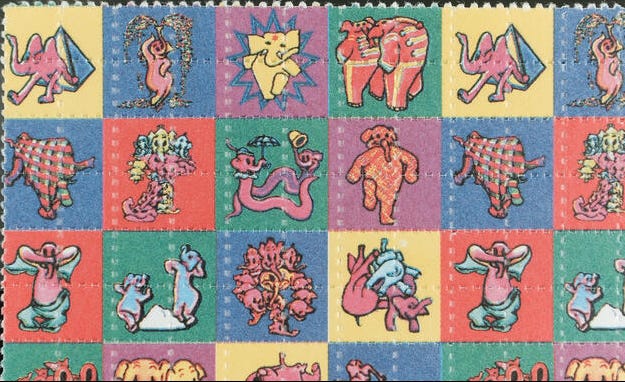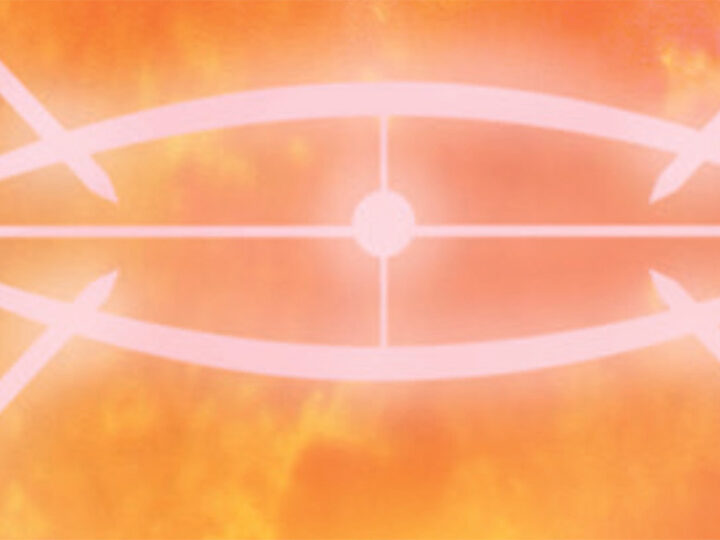
Goat Boy returns
My pal TJ turned me on to the comic Bill Hicks a number of years ago. Like Hicks, TJ was a sarcastic funlover from Texas, and he showed me a faux ninja movie that Hicks made back when he was a teenager already beginning a stand-up career. It was terribly hilarious. Hicks spent much of the rest of his life on the road, disguising brutal political diatribes and philosophical explorations—both rationalistic and psychedelic—as comedy. Though Hicks appeared frequently on Late Night and was huge in the UK, he achieved solid recognition in the USA only a few years before he died in 1994, at the age of 32, of pancreatic cancer. Given the blistering pungency and illuminating power of his attacks on the first Bush regime, social hypocrisy, and stupid Christianity, it is not surprising that some of his most ardent fans whispered of conspiracy.
Throughout much of his work, Hicks managed to achieve the rare stance of a truly prophetic comic: like the Biblical prophet, he stood outside of a corrupt society and spoke from righteousness and truth, a truth founded in reason, brutal self-honesty, and—surprisingly but profoundly—his own peculiar spiritual (and drug-induced) experiences. But though he wielded one of the sharpest satiric swords since Lenny Bruce, Hicks never absented himself from the human condition, and, as with Bruce or the early Richard Pryor, his vulnerability, craven porn-gobbling lusts, off-and-on substance abuse, and alienated air of anxious solitude undermine the righteousness, creating room for something far more affecting: compassion.
Hence the title of Soft Skull’s collection of transcribed routines, letters, reviews, and other Hickania: Love All the People. Reading the new expanded edition of this excellent johnside book is alternately exhilarating and depressing. It is exhilarating because Hicks is so multidimensional and volatile that even without the pacing and delivery of his life act, a single paragraph might simultaneously split your gut, make you mad as hell, cut through your personal bullshit, and illuminate the single soul you share with everything that lives. It is depressing because we have been wading through exactly the same warmongering hypocritical right-wing shit-pit that Hicks was lacerating back in the early 90s. It’s almost like he didn’t go away.
Reading Love All the People is as illuminating as it is entertaining, and illuminating in both the sense of rational enlightenment and experiential personal gnosis. In one of the great letters contained in the book, Hicks declares himself a shaman: “I am a Shaman come in the guise of a comic, in order to heal perception by using stories and ‘jokes,’ and always, always, always the Voice of Reason.”
It is not accidental that the rare and unexpected bridge that Hicks builds between cynical reason and spiritual vision passes through drugs, a topic which the comic Hicks has some great war stories, but though he was in recovery by the time most of this material was recorded, he valued and honored all the fun he had with drugs—a stance that, while funny in itself, also allowed him to expose the extraordinary hypocrisy and bullshit that cloaks the discussion of recreational substances in our benighted land.
Hicks covers a lot of territory, as routines about the difference between alcohol and pot lead into his hilarious attacks on non-smokers (which shift slightly but not hypocritically as he quits smoking (and then starts again)). Hicks also spoke often and favorably about psychedelics, a shadow topic even in intellectual America, and especially about his favorite drug, mushrooms. Shrooms granted Hicks one of those classic UFO-channeled “God-is-love-is-you-is-everyone” downloads that would land him squarely in the camp of those shroom gobblers recently studied at Johns Hopkins who acknowledged the religious nature of their experiences.
Without ignoring the ridiculous and hilarious aspects of such drug experiences, Hicks himself is a walking example of how such glimpses can provide a compassionate and affirmative balance to the dark if hilarious gifts of the Voice of Reason within, especially when that inner truth-teller is directed toward the illusory human world that Hicks earned the right to speak of both derisively and with almost naïve tenderness:
“Is there a point to my act? I would say there is. I have to. The world is like a ride at an amusement park. And when you choose to go on it, you think that it’s real because that’s how powerful our minds are. And the ride goes up and down and round and round. It has thrills and chills, and it’s very brightly colored, and it’s very loud and it’s fun, for a while. Some people have been on the ride for a long time, and they begin to question – is this real, or is this just a ride? And other people have remembered, and they come back to us. They say ‘Hey! Don’t worry, don’t be afraid, ever, because, this is just a ride.’ And we…kill those people. Ha ha ha. ‘Shut him up! We have a lot invested in this ride. SHUT HIM UP! Look at my furrows of worry. Look at my big bank account and my family. This has to be real.’ It’s just a ride…And we can change it any time we want. It’s only a choice. No effort, no work, no job, no savings and money. A choice, right now, between fear and love.
The eyes of fear want you to put bigger locks on your doors, buy guns, close yourself off. The eyes of love, instead, see all of us as one. Here’s what we can do to change the world, right now, to a better ride. Take all that money that we spend on weapons and defense each year, and instead spend it feeding, clothing and educating the poor of the world, which it would many times over, not one human being excluded, and we could explore space, together, both inner and outer, for ever, in peace.”






